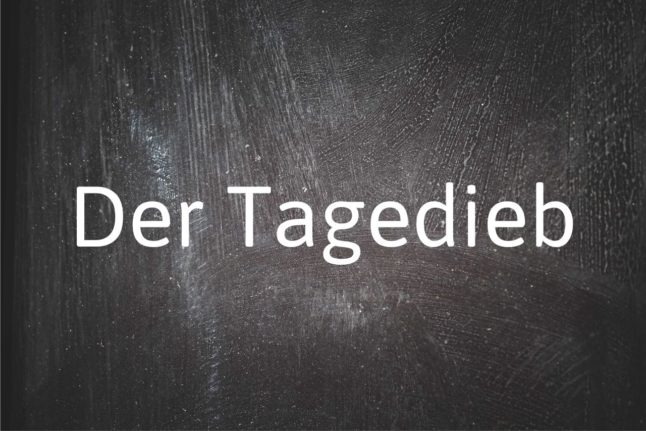Der Tagedieb (or Tagdieb) is a compound word consisting of two nouns: Tag meaning ‘day’ and Dieb meaning ‘thief’. With this combination, an image of someone ‘stealing the day’ is perhaps rather difficult to conjure. This doesn’t quite fit the actual definition of Tagedieb, although you can see where it’s coming from. Der Tagedieb is in actual fact a pejorative term referring to a dawdler, someone who wastes the day.
So, this word constructs an image of someone ‘stealing’ otherwise productive, useful time in a day, for idleness.
Although used more rarely now, the word has been in circulation since the 18th Century and can be seen in some of Goethe’s works, such as his travel report Italienische Reise (‘Italian Journey’). In the fourth volume of Johann Christoph Adelung’s 1801 German dictionary (Grammatisch-kritisches Wörterbuch der hochdeutschen Mundart), he describes a Tagedieb as someone stealing the days from God and time, instead passing them idly.
If the term Tagedieb doesn’t quite do it for you, though, there are plenty of other options, including Müßiggänger (‘dallier’ or ‘idler’) and Nichtstuer (‘slacker’). So on that note, here’s your push to go ahead and seize (not steal) your day!
Examples:
Sie sind die Tagediebe.
They’re the dawdlers.
Dein Bruder scheint mir ein ausgemachter Tagedieb zu sein.
Your brother seems to me to be an outright layabout.



 Please whitelist us to continue reading.
Please whitelist us to continue reading.
Member comments